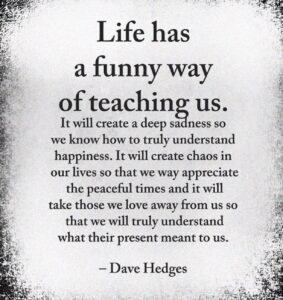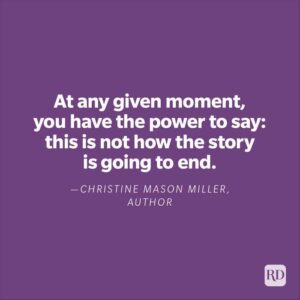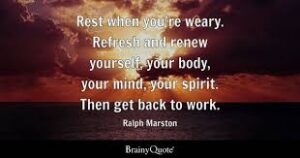by chandiniann | Mar 29, 2023 | Interesting Reads

I’ll be honest with you – I’m a bit of a failure expert. I mean, I’ve failed so many times in my life that I’ve lost count. But here’s the thing: I’ve learned to use failure as a tool for growth and development. So, if you want to turn your failures into success, you might want to read on.
Let’s be real, we all want to be successful. But life is a cruel mistress, and sometimes she’ll smack you in the face with a failed project at work, a relationship that goes up in flames, the sudden death of a spouse, or an opportunity that slips through your fingers faster than a Ferrari on the Autobahn
It’s a gut-wrenching, soul-crushing experience, but don’t throw in the towel just yet. Failure doesn’t have to be the end of the road. It can be the kick in the pants you need to start a new journey, one where you come back stronger and more resilient than ever before.
Through my own experiences, I’ve learned that failure is not something to be feared. Instead, it’s an opportunity to learn and grow. Sure, making mistakes is not ideal, but as long as you’re willing to learn from them, you’re already on the path to success. Setbacks can be blessings in disguise, and resilience and persistence are key to achieving your goals. #emotionalfitness
But you know what the best lesson I’ve learned from failure is? Humility. It’s so easy to get caught up in our successes and let them go to our heads. Failure reminds us that we’re all human and that we all have room for improvement. It’s a lesson worth remembering, no matter how successful we become.
So, if you’re feeling discouraged by a recent failure or setback, don’t worry – you’re not alone. Failure is not the end of the road, but rather a detour on the way to success. Use it to fuel your growth and development.
And if you’re still not convinced, just remember – some of the most successful people in the world have experienced failure at some point in their lives. Oprah Winfrey was fired from her first television job. J.K. Rowling was rejected by multiple publishers before Harry Potter was finally accepted. Even Thomas Edison failed over 10,000 times before he finally invented the light bulb. So, if failure can teach these successful individuals valuable lessons, imagine what it can do for you.
Listen up! Failure is not the monster hiding under your bed. It’s not something to be afraid of. In fact, failure can be your best buddy, your mentor, your… okay, let’s not get too carried away.
But seriously, when life gives you lemons, don’t just make lemonade, make a whole damn lemon pie! Failure is not the end of the road, it’s just a detour. And let’s be real, who doesn’t love a good adventure?
So, the next time you experience failure, don’t just curl up into a ball and cry. Embrace it, learn from it, and use it to fuel your future success. Who knows, maybe you’ll even look back and laugh at how far you’ve come.

by chandiniann | Mar 27, 2023 | Interesting Reads

We’ve all experienced the sensation of being engulfed in a bog, suffocating in its grip. You feel enmeshed, ineffectual, and befuddled. You long to advance, it’s mandatory. But you are incapable.
Soon, that sense transforms into distress, anxiety, and overwhelm. But what if—just what if—our perception of being trapped is the problem, not the feeling itself?
There are intervals when I feel “stuck.” However, upon closer examination, I realize that “being stuck” is a term I use to define a natural phase of life. It is when very little happens. The angst arises when I think it should be different. I compel myself to work, to generate concepts, and to achieve things.
When my efforts are fruitless, I refer to it as being stuck. What does being stuck mean except how I view life?
As I write this, I’ve been in a rut for the previous few months. The difference is that I struggle less now because I am starting to accept it.
You feel stuck when you want to be something you are not. When you believe life should be different from what it is.
I know I’m trying to coerce myself into doing something when words like ”should,” ”have to,” and ”must” enter my mind.
When I calm down and surrender to this tranquil phase in my life, things seem to be fine. I see that I am powerless over life. I can only notice what life offers me.
Being stuck is like quicksand. The more you attempt to escape, the further you descend.
My brain desires to push, dominate, and manage. It comes from insecurity. I want to be secure, cherished, and remarkable. I think that if I could control life, everything would be alright.
Things start to change only when I confront reality. Here are three things I do (but sometimes cannot)
Give up
When you’re stuck, submit to being stuck.
I observe the thoughts and emotions within me that indicate that I’m stuck and that something is wrong.
If I stay completely present in this moment, there is no being stuck. It’s just a label for a situation that I have invented based on what I think my life should be like.
When I realize what is happening, I breathe a deep sigh of relief.
However, that does not imply that the feelings vanish. I might still feel anxious, but it no longer has a stranglehold on me.
I can see the play of thoughts. I can surrender to whatever arises.
And I still resist at times, but I am improving at allowing it to be what it is. I am getting better at enjoying being stuck.
The amusing thing is that when we enjoy being stuck, we are no longer stuck because being stuck was all in our heads.
Enjoy Myself (or at least try)
There is always something you are inclined to do during these periods. You are not completely stuck, not in every area of your life.
Currently, I’m reading. I’m playing with my doggies, talking to my child. I’m watching films and TV shows.
And once in a while, I write articles like this, expressing what I feel.
I do what I need to do, but then I allow myself to have fun.
It’s easy for me to feel guilty during this phase because I feel like I’m not doing enough. But I’ve learned to understand that I’m doing the best I can.
It’s another example of getting trapped in the narrative I tell myself.
I am who I am. I’m doing what I can do. That’s enough.
And right now, it means doing less.

by chandiniann | Mar 24, 2023 | Interesting Reads
My heart is heavy as I pen these words on his death anniversary, for I know all too well the pain of losing a loved one. The devastation of such a loss cannot be put into words, but as I reflect on my journey through grief, I recall moments of solace and comfort that helped me endure. I share my experiences and reflections now, hoping they may offer even a small measure of support to others who have walked this same path. Though each of our experiences is unique, there is strength and healing to be found in the knowledge that we are not alone in our grief.

I cling to scraps of Nitish. Memories, letters, and mementoes; anything I can get. I’ve obsessively combed through his letters, cards, and notes, treasuring every scrap of his memory that I can find. I search tirelessly through my past and even other people’s memories to find the missing pieces of our relationship.
Keeping a continuing bond with Nitish, my beloved who passed away, has been my way of reconciling the painful gap between my current reality and our cherished memories. To maintain our connection, I search for signs of his presence and communicate with him through my fantasies. This process has allowed me to fold new experiences into my memory and integrate them with our preexisting memories, enabling me to maintain a healthy relationship with him. Even though I am uncertain whether he is truly with me, the comfort and stability this bond provides are priceless.
Nitish and I embraced the philosophy of “spaces in our togetherness,” as Kahlil Gibran so beautifully articulated.
Even after his passing, Nitish continues to care for me in profound ways. He had prepared detailed instructions (as though he could sense his premature departure) on how to manage our finances, which have become my responsibility. I pore over spreadsheets and documents, searching for guidance amidst his handwritten notes and occasional sticky memos. Though I sometimes yearn for his guidance, his voice remains a constant comfort and source of direction.
As I continue to grapple with Nitish’s absence, I find myself embracing a paradoxical mix of emotions. I am sad but not unhappy, alone but not lonely, and single yet in a relationship. While I feel loved by many, I no longer feel loved by him in particular.
But despite his absence, our relationship endures. Nitish’s love and support provided the foundation for my bold independence. Even as I navigate this surreal new world without him, his love remains the rock on which I rely, providing comfort and encouragement as I bear my grief.
Nitish may be gone, but our love lives on, shaping me and fortifying me for the journey ahead. Our relationship, like a beloved character in a book, lives beyond his passing, impacting my life in profound ways. As I continue to turn to his love for solace and strength, it remains a deeply embedded internal reservoir, a source of soulful support and guidance that will continue to shape my life for years to come. Till we meet again…….

Red rose on gravestone in cemetery
by chandiniann | Mar 23, 2023 | Interesting Reads
NOTE TO SELF

Let me tell you, my friend, dreams are the fuel that ignites the fire within us. They are the foundation upon which you build your goals and aspirations. They are the driving force that propels you forward towards success.
But let’s face it, life can be tough. Challenges and setbacks can shake your confidence, leaving you feeling doubtful and uncertain. That’s when you need to rediscover the power of dreams and self-belief.
Dreams are not just random thoughts that come and go. They are the spark that ignites your passion and purpose. They give you something to work towards, something to strive for, something to make you feel alive.
And to achieve those dreams, you need to believe in yourself. You need to have unshakeable confidence in your abilities, and a conviction that you can overcome any obstacle that comes your way.
Believing in yourself can be challenging, especially when you face criticism or negativity from others. But that’s when you need to dig deep and hold onto your dreams. You need to surround yourself with people who believe in you and support your goals.
With the power of dreams and self-belief on your side, you become unstoppable. You can tackle any challenge, overcome any obstacle, and achieve anything you set your mind to.
So, my friend, hold onto your dreams with all your might. Believe in yourself and your abilities, even when others doubt you. Surround yourself with those who believe in you and support your goals. And never forget, you have the power within you to make your dreams a reality.
In the words of Walt Disney, “All our dreams can come true if we have the courage to pursue them.” So, go out there and pursue your dreams with courage, confidence, and unwavering self-belief. You’ve got this!

by chandiniann | Mar 21, 2023 | Interesting Reads
Ignoring others might make one feel powerful, but it also makes one look like a garden gnome with a superiority complex

You’ve probably experienced the frustration of being ignored by someone who has the power to help you. Whether it’s a missed opportunity, a lack of response, or a blatant disregard for your needs, being ignored can feel like a punch to the gut. It’s a universal experience that leaves us feeling hurt, angry, and confused.
As a sentient being, I am invariably struck by a wave of acrid dismay when individuals in positions of power choose to neglect those that could use their support and help. The mere thought of being ghosted, whether regarding a professional opportunity or a trivial email, elicits a range of passionate responses from me, including anger, rejection, and resentment. Nevertheless, I have learned to exercise my emotional intelligence and self-awareness to ensure these intense sentiments do not manifest into an uncontrollable downward spiral.
One of the fundamental strategies I employ is reframing my internal dialogue. I refuse to make the unfounded assumption that the person in question has intentionally snubbed me out of malice or disrespect. Instead, I opt to consider the possibility that they may be juggling multiple obligations or grappling with overwhelming circumstances. Though this by no means excuses their lack of response, it serves to remind me that their actions, or lack thereof, are not necessarily a reflection of my value or worth.
Sometimes, when I find myself trapped in a difficult situation, I try to take a step back and see things from a different perspective. I ask myself some tough questions, like “Is this truly my only choice?” or “What other paths could I take to reach my goal?” or “Is this challenge worth the emotional toll it’s taking on me?” By asking myself these critical questions, I’m able to break free from tunnel vision and open my mind to a range of possibilities and approaches towards achieving my desired outcome.
Through this process of introspection and self-reflection, I can access a deeper level of understanding and clarity. It helps me to see beyond the surface-level challenges and recognize the underlying motivations and factors at play. By doing so, I can make more informed decisions and take deliberate actions that align with my values and long-term goals. It’s not always easy to detach myself from the situation and ask myself these tough questions, but in the end, it’s worth it because it allows me to approach the situation with a renewed sense of purpose and perspective.
Equally crucial is my shift of attention from the party in question to the sphere of control I possess. Instead of obsessing over the offender, I redirect my focus towards actions I can take to advance my objective. This may include soliciting assistance from alternate sources, taking independent action, or merely abandoning the situation entirely and moving on.
Finally, I make sure to prioritize adequate self-care. Dealing with the emotional burden of being ignored can be all-consuming and draining. Therefore, it is crucial to prioritize my physical and emotional well-being. This might involve taking a break from the situation, participating in activities that bring me happiness, or seeking guidance and a new perspective from trusted confidants.
I believe that managing my emotions amid adversity is not a solitary journey. It requires me to tap into my innermost resources to achieve success. I must harness the power of my intellect, intuition, and resilience to navigate through the tumultuous terrain of my emotions. By doing so, I can rise above the challenges that confront me and emerge as a stronger, more accomplished version of myself. Ultimately, through these struggles, I can uncover my true potential and realize my highest aspirations.
It’s time to break the cycle of neglect and choose empathy instead of ignorance.











